by Asia Leonardi
“My soul is a hidden orchestra; I know not what instruments, what fiddlestrings and harps, drums and tamboura I sound and clash inside myself. All I hear is the symphony.”
I like to think of Fernando Pessoa as an alchemist of sensations. The white sheet is his work table, the ink that dyes his thoughts is in perennial cathartic movement, dances and leans over the white edge, or, as Piero Cecucci wrote, “on the edges of the well of the nothing”.
“On the edge of the precipice
we play dancing.
…………………..
On the edge of the precipice,
we play smiling
on the edge of the precipice
where we will fall.”
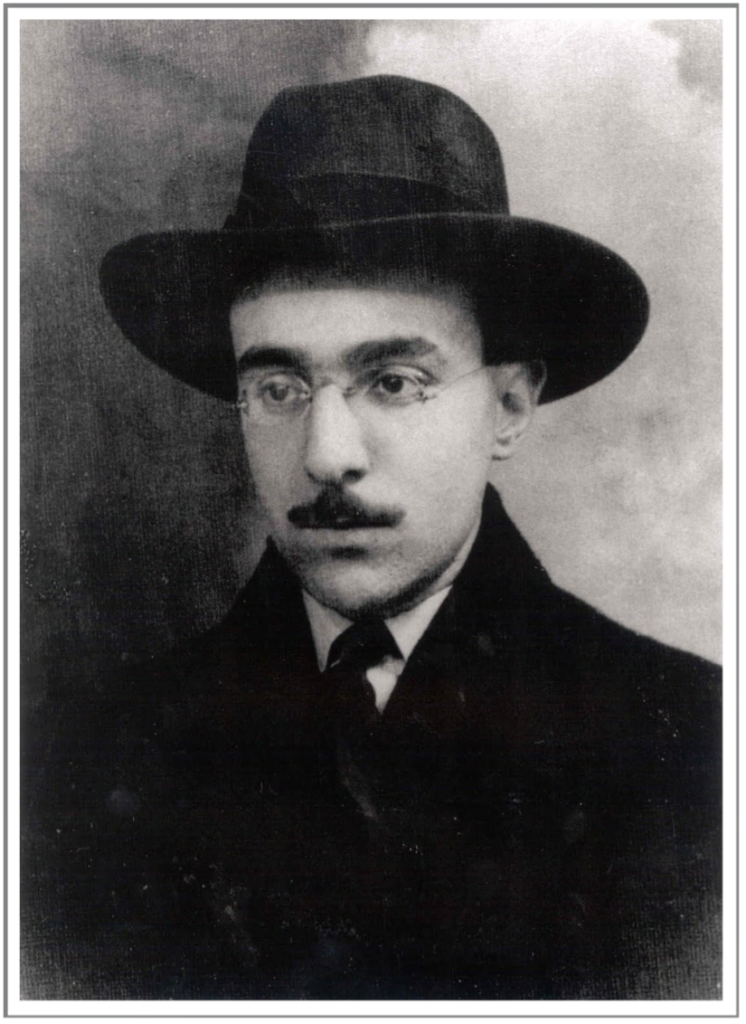
Pessoa asserted himself almost secretly, fragmented, broken down and reassembled between words, in a country also afflicted by a political, social, and cultural crisis, a country that, perhaps due to a game of fate, gave him the surname of “Pessoa”, which in Portuguese means “person”.
The holistic universe that weaves the pen of Fernando Pessoa drifts into a place that is locus amœnus and horridus at the same time, a theater in which the loss of the self and the discovery of dreams are staged, the ambivalence between life and writing.
Reading a text by Pessoa means delving into what the poet defines as “foresta do alheamento” (“forest of estrangement”) where the grassy streets merge into the dissonance of the human soul, incurable madness, indissoluble mystery, multitude of verses, sounds, shrill, neither reducible nor reconcilable to coherence. It will be for this reason that we can talk about oxymoron-pessoa, oxymoron sense-reason made real, which finds in the poet’s posture, in his way of reaching out to the limits of reality and the unknown, and inscribing it in the instrument of the poetic text its maximum and unprecedented expression.
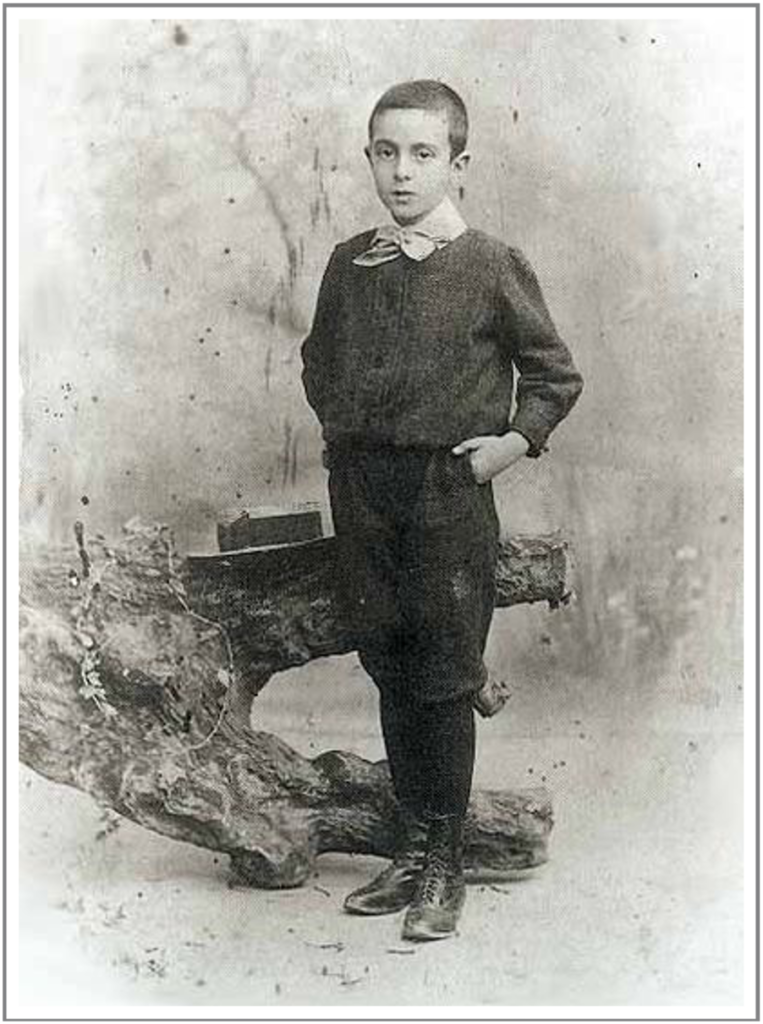
Fernando Pessoa’s poetic text is in an acrobatic balance between getting lost in unfathomable nihilism and dressing in dramatic fiction colored by multitudes more alive than reality. A cloud that pierces the sky, and embraces it in a veil of forbidden melancholy; an afternoon that dies and rises again with every stroke of the clock, in the most silent insensitivity of the people who continue to walk the street.
The outline of Pessoa’s life seems imbued with a sort of parodic prosopagnosia, a magnifying glass that sees in the details the birth, growth, death, and resurrection of an infinite universe that does not find coherence with the innumerable coexisting multiplicity. Pessoa does not feel with the heart, but with the imagination: what he narrates is life within life and death within death, a wide circle that includes the impossible totality of shapes, ideas, sounds, sensations that are all interconnected, yet explicitly conflicting; such a life can only be lived in power, through figures of the mind: “not a thing, but a being of pure power […] every power to be or to do something is […] always also the power of not being or not Aleister Crowley and Fernando Pessoa in a Lisbon’s coffee house, to do”.
And again: “I live like this, of pure vision, the outside animated by things and beings, indifferent, like a God from another world to their spiritual content. I deepen only the external surface, and when I aspire to depth, it is in me and in my concept of things that I seek it”.
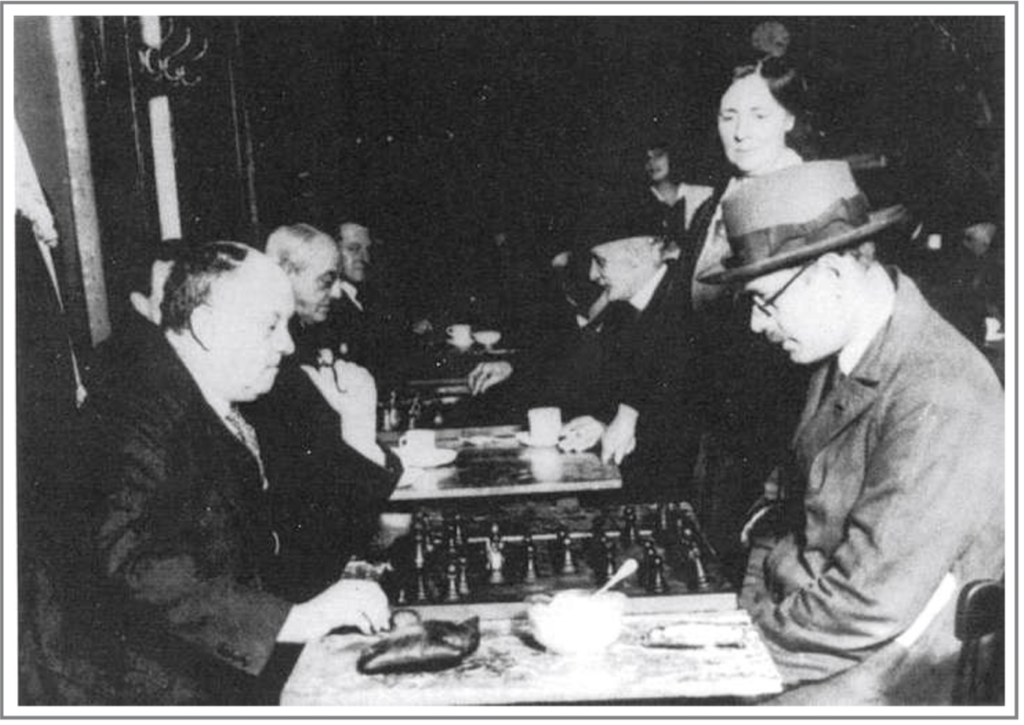
Every cultured sensation is for Pessoa a leap of the imagination, which has become a cruel lucidity that can – stimulated by the anxiety of the beyond – draw and interpret superhuman thoughts, grazing the sharpest peaks, sinking into the most terrifying abysses, or sometimes, the combination of the two.
It is impossible to summarize the macro test (or testament) of Fernando Pessoa, but wanting to try it, I like to think of the sentence “Sentir tudo em todas as maneiras”, “to feel everything in all ways” and I would add: and in all possible persons.
Feeling, becoming plural and multiple like the universe, to be absorbed by it and reborn disassembled, in indistinct moments dispersed in time and space: multiplying into people to be able to soak up the multiplicity of being and sensations, with the ultimate aim of recomposing them a picture of a dissonant mind. Pessoa shatters the unity of himself to substantiate the kaleidoscopic unraveling of his sensations, which are emancipated to become distinct pieces of the self.
“And since they are shattered
of being, the scattered things,
I break my soul into fragments
and in different people”
[312. I leave it to the blind]
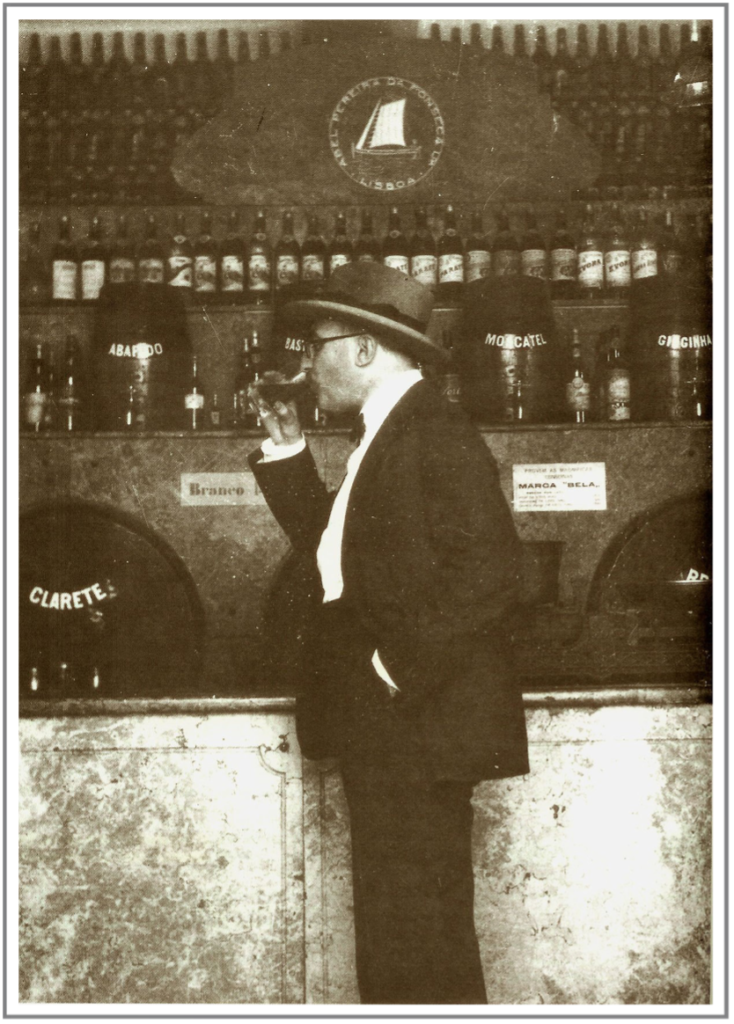
Thus were born the heteronyms Alberto Caeiro, Riccardo Reis, Álvaro de Campos, Bernando Soares, Alexander Search, António Mora. We are able to identify, within his notes, 72 personalities, some barely mentioned and with indistinct biography (“God has no unity / how would I have it?”). Personalities are born in the course of work, it is the word that, in a Pirandellian way, identifies and claims its author, shapes, and molds him, comes to give him bodily conformity, a posture, and a biography.
Pessoa also elaborates a literary project called “drama in people”: a theatrical drama where, instead of acts, it is the sensations that arise, complex and multiple in their essence, that find representation in the work.
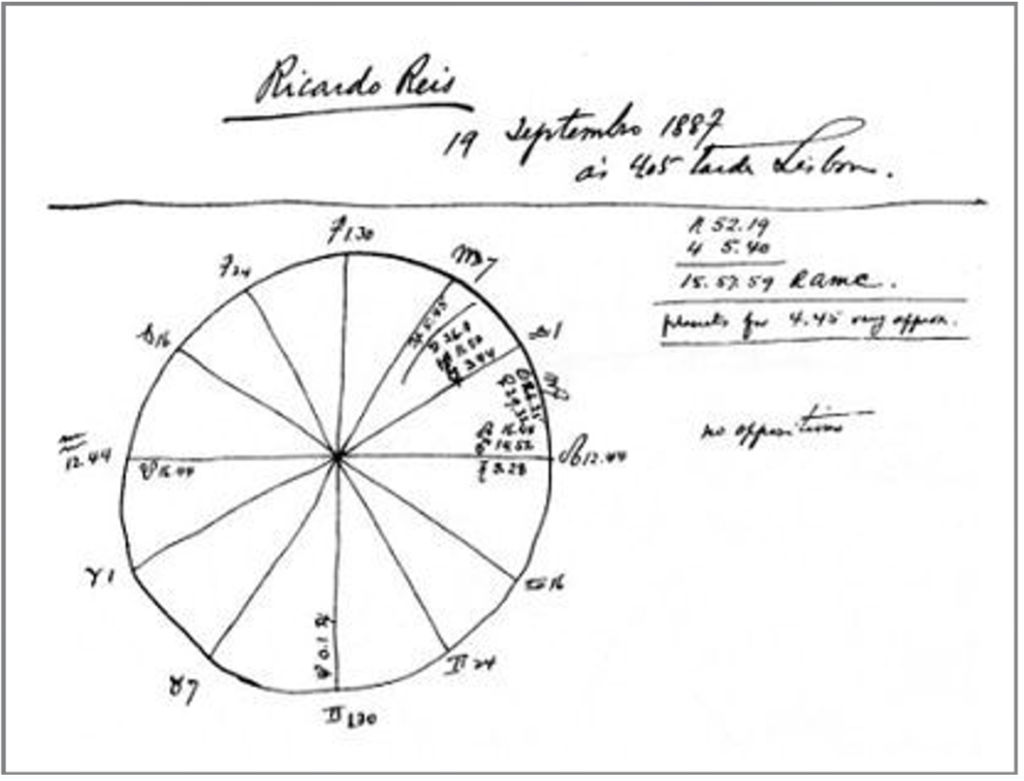
We must certainly take into account that Pessoa does not live isolated from his environment, but absorbs the cultural elements of his time, inherent in the disintegration of the subject, in the birth of psychoanalysis, in the fall of the myth of objectivity, and whose echo resonates in the European literature of the period. Fernando Pessoa was able to immerse himself more than others in what Eduardo Lourenço called “exploded consciousness.”
At this point, it seems adequate to present the voices of this incredible “coterie inexistente”, visible only through the ink of the words. Pessoa, in his letter to Adolfo Casais Monteiro of 1935, gives a pathological explanation and attributes the appearance of heteronyms to a form of hysteroneurasthenia, determined by its constant and organic tendency to depersonalization and simulation. And so here the are:
Alberto Caeiro was born in Lisbon in 1889, blond with blue eyes, lived almost exclusively in rural areas, where he died of tuberculosis in 1915. Caeiro is a poet of Nature, of pagan sensitivity, affirms the non-existence of philosophy and metaphysics, and denies the mystery behind things, as his verses explain “Because the only occult sense of things / is that they have no occult sense. / Things are the only occult sense of things.”
Álvaro De Campos was born in Tavira, in the Algarve, in 1880, and is a Glasgow graduate naval engineer. He travels to the East and England, then moves to Lisbon without practicing a profession. In his verses, he represents the personification of the neurotic expression of sensationalism (it is to him that the sentence “to feel everything in all ways” is attributed). He is the poet of disillusionment, of disenchantment, but also the flute of the eccentric vitality of contemporary civilization, he makes excesses the basis of his poetics. In the irreversible moment of his existential psychic dysphoria, the poem “Tabaccheria” arises, which translates into a nostalgic detachment from the world, a conscious and resigned farewell to the overflowing exuberance of free verse.
Ricardo Reis is a doctor, born in Oporto in 1887, educated in a Jesuit college. Of strong monarchical convictions, after the political defeat of the movement that had regained power to prevent a period in Porto and Lisbon, he emigrated to Brazil. Pessoa does not give news of his death, and the circumstance will be the narrative pretext, a few decades later, of the novel by José Saramago “The year of the death of Ricardo Reis”. Reis is the neoclassical poet who is entrusted with the reconstruction of pagan aesthetics, prefigured by Alberto Caeiro. Alongside the two figures, Pessoa is flanked by the philosopher António Mora, author of the unfinished work “The Return of the Gods” in which he allegedly announced the theorization of neo-paganism.
Bernando Soares is defined by Pessoa himself as a “semieteronym”, representing in truth almost an alter ego of the poet. To be more precise, Soares is a Pessoa mutilated by his reasoning and his affection. He is credited with the editing of “The Book of Disquiet”. He has no real biography, but rather unfolds as a literary personality, sharing the type of job with Pessoa (accountant of a commercial firm in the Baixa district of Lisbon) and he too lives in a furnished apartment on the fourth floor of a building in Rua dos Douradores.
In this coterie inexistente the voices of a friar, a translator, the astrologer Rafael Baldaia, diarists, a noble suicidal also emerge. All of them correspond, as a whole, to an immense textual corpus, which struggles between poetry, literary criticism, philosophical notes, mysticism, aesthetics, astrology, editorial projects, a guide to Lisbon in English, and much more.
Fernando Pessoa died of a liver crisis on November 30, 1935, at the Hospital of S. Luigi dei Francesi. On the 29th, he wrote his last words in English “I know not what tomorrow will bring”. In 1985, fifty years after his death, his body was transferred to the Monastery of San Geronimo. The names of his faithful heteronymous, as inseparable members of the coterie inexistente, are engraved on the tombstone next to his name.
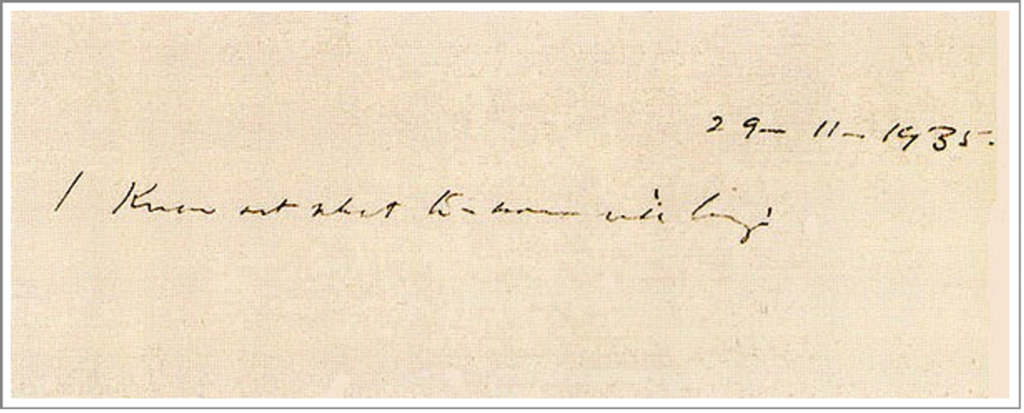
===========
The Carl Kruse blog homepage.
Contact: carl AT carlkruse DOT com
The blog’s last post was Dana Gioa’s poem “Summer Storm.”
Another blog curated by Carl Kruse is the tech blog at https://carlkruse.at
Carl Kruse Bio
THE Portuguese writer. So diverse. So amazing.